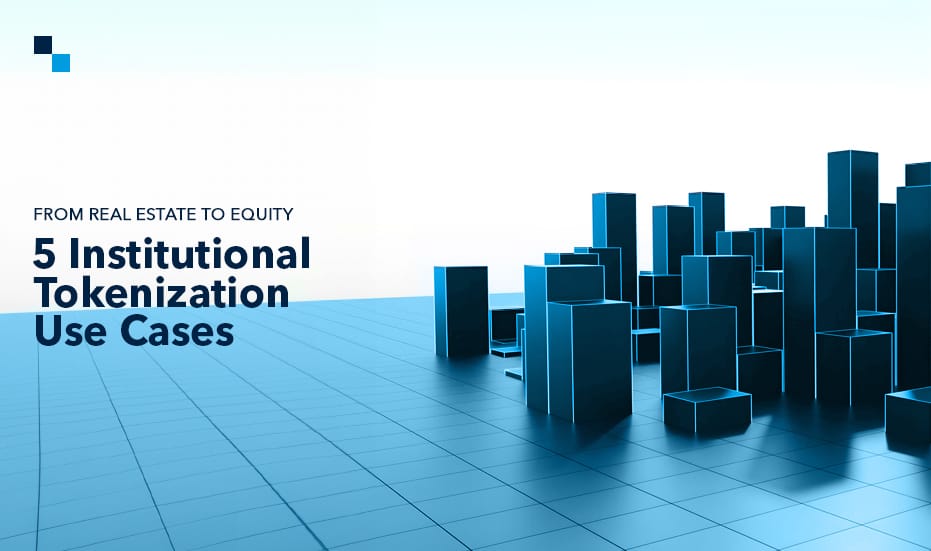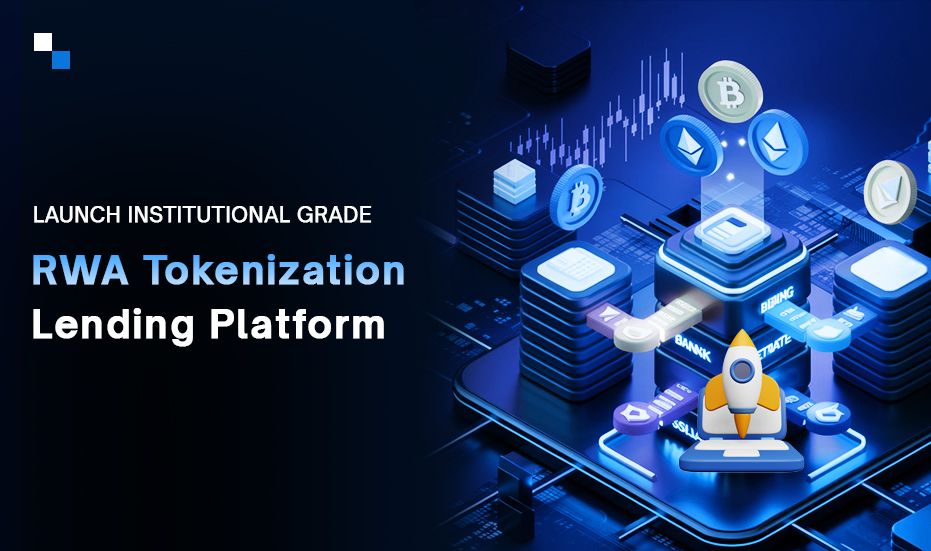
Explore Solana’s Top Launchpads: Empowering the Next Wave of Blockchain Projects
November 11, 2024
Choosing the Blockchain for Cryptocurrency Exchange Development: Solana or Base?
November 11, 2024Today, tokenization has become a key focus among investors, as it has revolutionized the traditional finance industry with its transformative applications—one of which is institutional tokenization. The term ‘tokenization’ refers to the process of converting ownership or property rights of real-world assets into distinctive digital tokens on a blockchain. When we talk about institutional tokenization, it takes this process into the financial world, where major asset classes are converted into digital form to increase liquidity, accessibility, and transparency for a wide pool of investors.
In this blog, we’ll explore the top use cases of institutional tokenization and the specific advantages it brings to assets like real estate, bonds, commodities, and beyond.
Explore the Top Institutional Tokenization Use Cases
1. Real Estate Tokenization: Breaking Down Barriers for Investors
Traditionally, real estate investments required significant capital, constraining the participation of high-net-worth individuals and institutional investors. However, with real estate tokenization, property ownership can be divided into smaller, tradable digital tokens, making it accessible to small investors as now they can buy a fraction of the property instead of buying an entire asset.
Key Benefits:
- Increased Liquidity: Real estate tokenization opens doors for fractional ownership. It allows investors with low budgets to buy and sell shares of properties without buying the full asset.
- Lower Barriers to Entry: Tokenization breaks properties into smaller investment units, and this benefit enables a wide pool of investors to participate.
- Global Access and 24/7 Trading: Property converted into digital tokens can be tradable on secondary markets worldwide, which offers constant access and increases market liquidity.

2. Bonds Tokenization: Transforming Debt Markets
Bonds (fixed-income securities) are another major asset class well-suited for institutional tokenization. The traditional bond market is associated with high transaction fees, slow settlement times, and limited transparency which makes it challenging to navigate. The tokenization of bonds can bring much-needed modernization to this market.
Key Benefits:
- Instant Settlement and Reduced Fees: In the traditional bond market, the settlement period typically takes two to three days. However, with blockchain, real-time settlement is possible, eliminating the waiting period and reducing associated fees.
- Enhanced Transparency: Each bond token’s ownership, transactions, and other details are recorded on an immutable and distributed ledger, which ensures greater transparency for investors.
- Wider Accessibility: Bond tokenization also allows fractional ownership, meaning smaller investors can participate in markets previously restricted to larger entities.
3. Commodities Tokenization: Making Precious Metals and Energy More Accessible
The concept of institutional tokenization blockchain has also entered the commodities sector. Tokenization allows physical assets like gold, silver, oil, and even renewable energy credits to be digitized into tokens. This approach brings commodities closer to everyday investors who might otherwise lack the means to invest in such markets.
Key Benefits:
- Ease of Access and Fractional Ownership: Institutional tokenization crypto including the use case of commodity tokenization allows investors to own small fractions of a commodity, making investments in gold or oil accessible even to those with limited investment funds.
- Greater Liquidity: Earlier, trading the commodities was challenging. However, with commodity tokenization, investors can enjoy more liquidity & flexibility in trading.
- Environmental Accountability: When it comes to energy and carbon credits, tokenization provides a transparent way to track and verify emissions reductions or renewable energy contributions.
4. Equities Tokenization: Opening Up Stock Markets
Equity tokenization digitizes the shares of a company, transforming them into tokens. It provides an ease to companies to issue shares directly on a blockchain. This institutional tokenization blockchain use case offers significant potential in terms of enhancing capital raising and democratizing access to corporate equity.
Key Benefits:
-
- Fractional Equity Ownership: Tokenization allows investors to buy fractions of shares that make high-value stocks more accessible.
- Faster, Cheaper Transactions: The traditional stock market has the involvement of multiple intermediaries, which contributes to costs and settlement times. Tokenization can streamline these processes, leading to lower costs and faster transactions.
- Global Accessibility: Tokenized equities could enable people worldwide to invest in companies regardless of geographical restrictions.

5. Fund Tokenization: Revolutionizing Asset Management
Fund tokenization involves creating digital tokens representing shares of investment funds, like mutual funds or venture capital funds. This institutional tokenization crypto use case boosts transparency, accessibility, and efficiency within the asset management industry.
Key Benefits:
-
-
- Greater Transparency: Fund tokenization allows investors to track fund performance on a blockchain that fuels transparency than traditional fund management.
- Improved Liquidity: Investors can buy and sell fund tokens on secondary markets, unlike traditional funds that often have lock-up periods.
- Expanded Investor Base: Tokenized funds can be accessible to retail investors, democratizing access to high-value investment opportunities.
-
Conclusion
The institutional tokenization blockchain opens doors to new opportunities for investors and financial institutions, revolutionizing the way assets are owned, managed, and traded. The use cases of institutional tokenization clearly demonstrate its potential to drive innovation across the financial landscape.
If you’re ready to leverage the power of tokenization, consult our blockchain experts today. Antier is a leading blockchain development company, offering comprehensive institutional tokenization blockchain support to empower you to stay ahead in the evolving world of digital finance.



